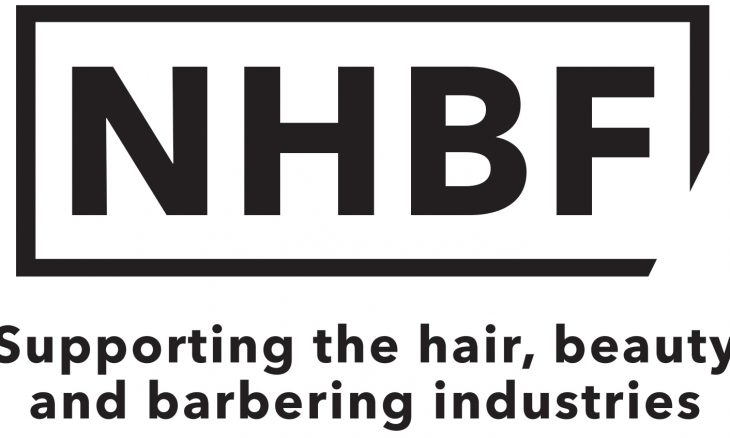The National Hair & Beauty Federation (NHBF) has called on Liz Truss, the new Prime Minister, to provide a series of actions giving immediate support to hair, beauty and barbershop businesses and shore up their survival chances over the next six months.
According to the latest NHBF quarterly State of the Industry survey in July 2022, businesses are only just again showing the more positive signs of recovery that we first saw in September 2021, before it was choked off by the Omicron surge over Christmas. Only 44% of businesses are making a small or good profit, raising prices is a consistent trend and reliance on government support is still high at 50%. Business confidence has improved, but 42% of sector businesses still face the long shadow of debt built up during the pandemic lockdowns, which will take 63% of those indebted businesses more than two years to clear.
In a letter sent to both PM candidates, Liz Truss and Rishi Sunak last week, the NHBF requested the following:
- Introduce a small business energy price cap with grant support.
A small business energy price cap for small and micro businesses, accompanied by emergency grant support for a six-month period, would shield them from crippling energy bills. Energy companies should also be encouraged to offer a range of flexible payment plans so that businesses are supported to pay off bills over a longer period.
In a sector where energy costs are the largest or second largest overhead, we know from a sector wide survey in March that the overwhelming majority have seen prices rise and for half by more than 50% over the last year. In response to rising prices, businesses are already cutting costs, putting up prices, holding off taking on new staff and introducing multiple energy saving measures.
- Reintroduce 100% business rates relief.
Businesses need crucial help with fixed overheads, to maintain cashflow and keep them in business as energy and business costs rise. Building on the 50% discount, we would like to see 100% relief re-introduced as soon as possible and for the remainder of the financial year 2022-23.
The previous 100% relief was invaluable in supporting sector businesses through the pandemic. We also call for a freeze to the business rates multiplier that will rise in the autumn in line with inflation, to protect businesses from higher rises to rates bills.
- Offer targeted apprenticeship incentives small and micro employers.
The sector is desperate to provide meaningful jobs to more young people, but in a sector made up predominantly of small and micro businesses, affordability is challenging in the current climate. The £2.7 billion made available in the Autumn Budget 2021 and £2 billion Apprenticeship Levy underspend offers opportunities to channel funding to small and micro businesses through offering apprenticeship incentives between £1,000-3,000 per employee. This would particularly to help fund the gap between the apprentice wage and the national minimum wage for older apprentices aged 19+.
- Restraint on increases to the National Minimum Wage and National Living Wage.
We have called on the Low Pay Commission for restraint in their recommendations to the Government on further increases to the National Minimum Wage (NMW) and National Living Wage (NLW), given the current challenging economic environment. In response to the rise in National Insurance Contributions (NICs) and NMW/NLW in April, businesses absorbed some of the extra cost by reducing their profit margins, but many put up their prices. However, it is a balancing act and businesses can only raise prices so far before customers return less frequently.
- A fairer tax system and a crackdown on tax evading businesses.
The NHBF is calling for a fairer approach to the tax system which creates more of a level playing field between businesses with employees and businesses using self-employed individuals, a growing trend within the sector.
We would welcome further discussions with HM Treasury around the way that VAT is applied including raising the VAT threshold so that more small and micro businesses benefit from relief, reducing the VAT rate to 5% or introducing tiered rates for the smallest businesses to remove the disincentive to grow and remain below the threshold.
We also call on the Government to lead a crackdown on informal businesses operating on a cash basis in the margins, not paying tax or VAT, which means they charge lower prices, undercutting and threatening the survival of responsible businesses and undermining pay legislation.
Richard Lambert, NHBF chief executive, says “The sector is in the midst of the cost of doing business crisis, with energy bills rising at an exponential rate, supply price inflation at levels not seen for a generation, increases to staff costs and a skills crisis that is putting the future health of the sector at risk.
The sector has ridden the rollercoaster business environment over the last two years and survived, due to its own steely resilience and the vital support provided by governments across the UK. With continued support from the UK Government, we are confident that the personal care sector will continue to play a crucial role in the UK’s economic recovery, thriving high streets and community wellbeing.”
The hair and beauty sector makes a significant contribution to the UK economy, with £5.5 billion spent on services in 2019-20[1] and consumer spend across the whole sector totalling £27.2 billion[2] in 2018. Salon businesses, led predominantly by female entrepreneurs, provide valuable careers to 257,000 people, more than half aged 18-35, across the UK. The sector enhances the health and wellbeing of local communities and, despite the pandemic, the number of businesses continued to grow.
@nhbfsocial
[1] Industry Statistics 2021
[2] British Beauty Council ‘Value of Beauty’ Report, Oxford Economics (July 2019)

